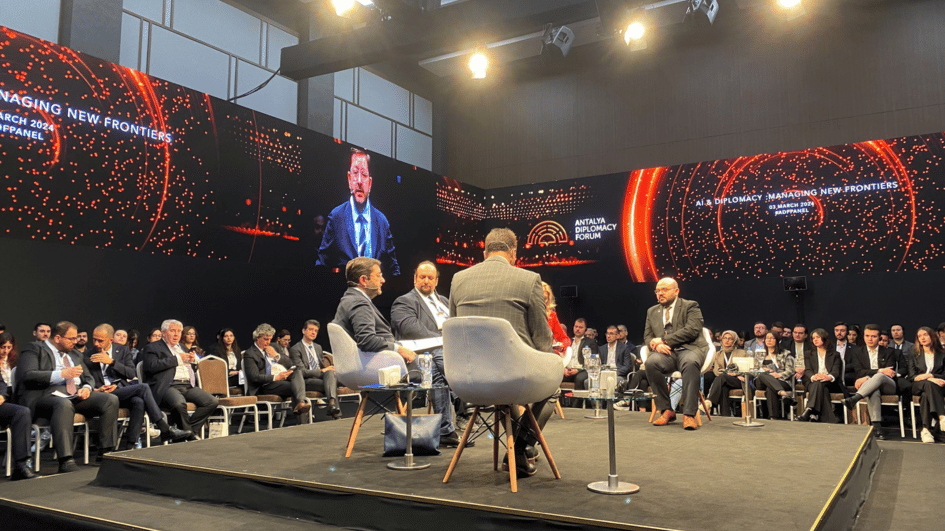Alperen Karaköse – ANKARA

The technological revolution, notably the rise of artificial intelligence (AI), is transforming diplomacyoffering significant opportunities as well as critical challenges, according to a leading expert.
AI holds immense potential to reshape governance, education, healthcare and the economy, but ethical considerations and risk mitigation are crucial, experts agreed at a recent diplomatic forum in Antalya, in the south of the country, earlier this month.
Manuel Muñiz, dean of IE University in Spain and a panelist at the forum, told Hürriyet Daily News of the “many possibilities” that AI offers for diplomacy.
Muñiz, an expert on the political, economic and social impacts of technology at the university’s Center for Governance of Change, highlighted AI’s ability to process large amounts of data.
He said it would have a significant impact on consular work, streamlining tasks ranging from passport issuance to crisis management. AI could even play a role in mediation and peacemaking, the expert added.
“Multi-party negotiations are incredibly complex,” he said. “AI tools designed for mediation could assess the interests of different parties and suggest resolution paths.”
The impact of AI on language and translation in diplomacy is also undeniable, Muñiz said. “There will be an obvious effect in terms of translation and the use of languages in diplomacy,” he noted. “AI tools have enabled unprecedented levels of engagement.”
However, AI also presents challenges. Its development and integration into new weapon systems requires special attention from military and security institutions, according to Muñiz, former secretary of state at the Spanish Ministry of Foreign Affairs.
“The most obvious and imminent threat, however, will materialize in the space of public debate,” he warned. “AI tools can be used to easily generate false or misleading content. Increasingly, these campaigns will integrate images, audio and video, in a personalized way, allowing for highly targeted campaigns. »
As a result, Muñiz emphasized the importance of ethical considerations when integrating AI into diplomacy. He called for a common approach to AI governance and a well-equipped staff within foreign ministries, made up of people who understand both policy-making and technology.
To ensure fairness in any diplomatic AI, Muñiz explained, “we need diverse data sets to ensure that algorithms reflect the diversity of each society.”
Additionally, transparency, explainability and data privacy are essential to ensure that algorithms comply with strict regulations and protect sensitive diplomatic information, he explained.


